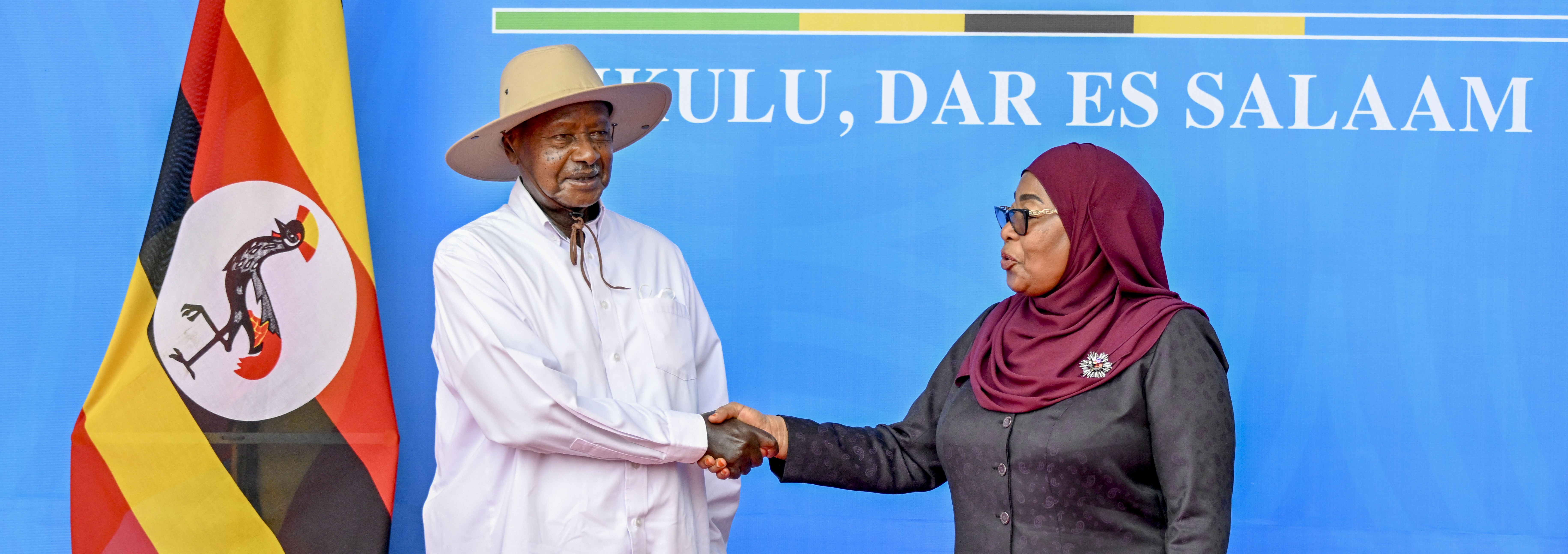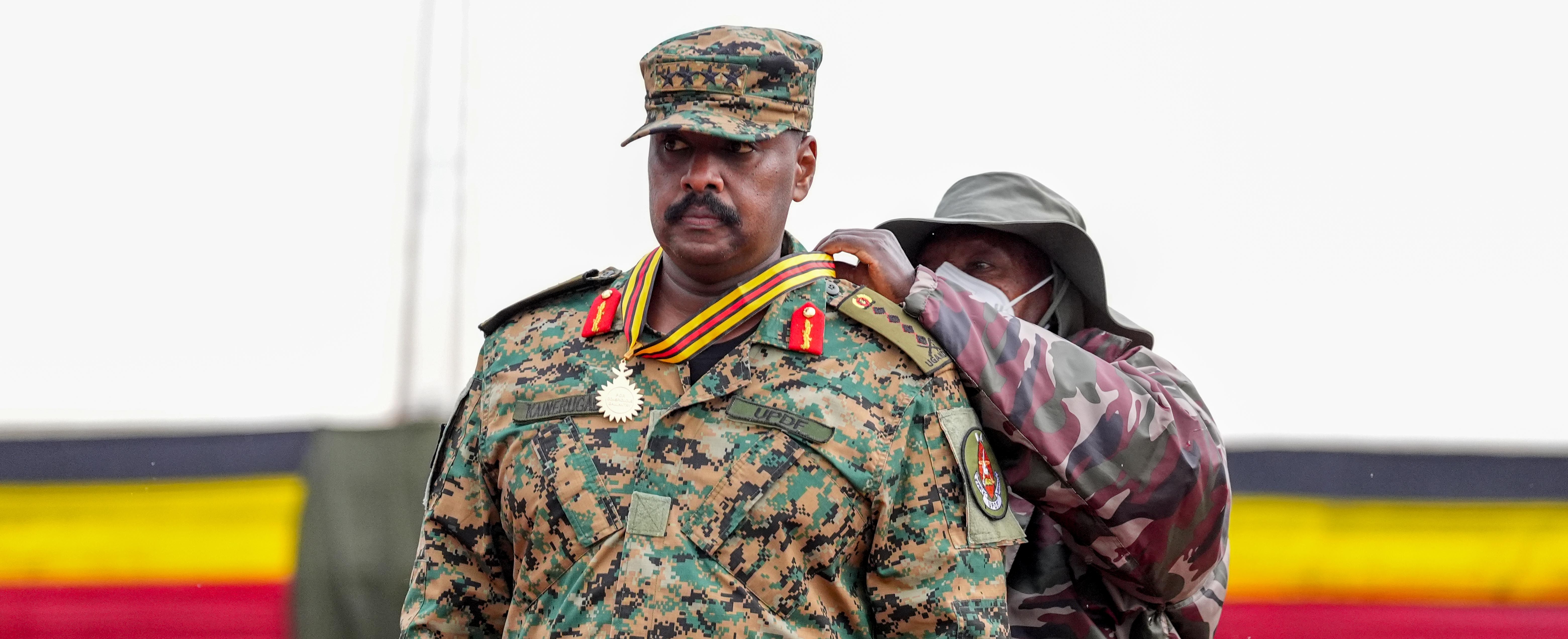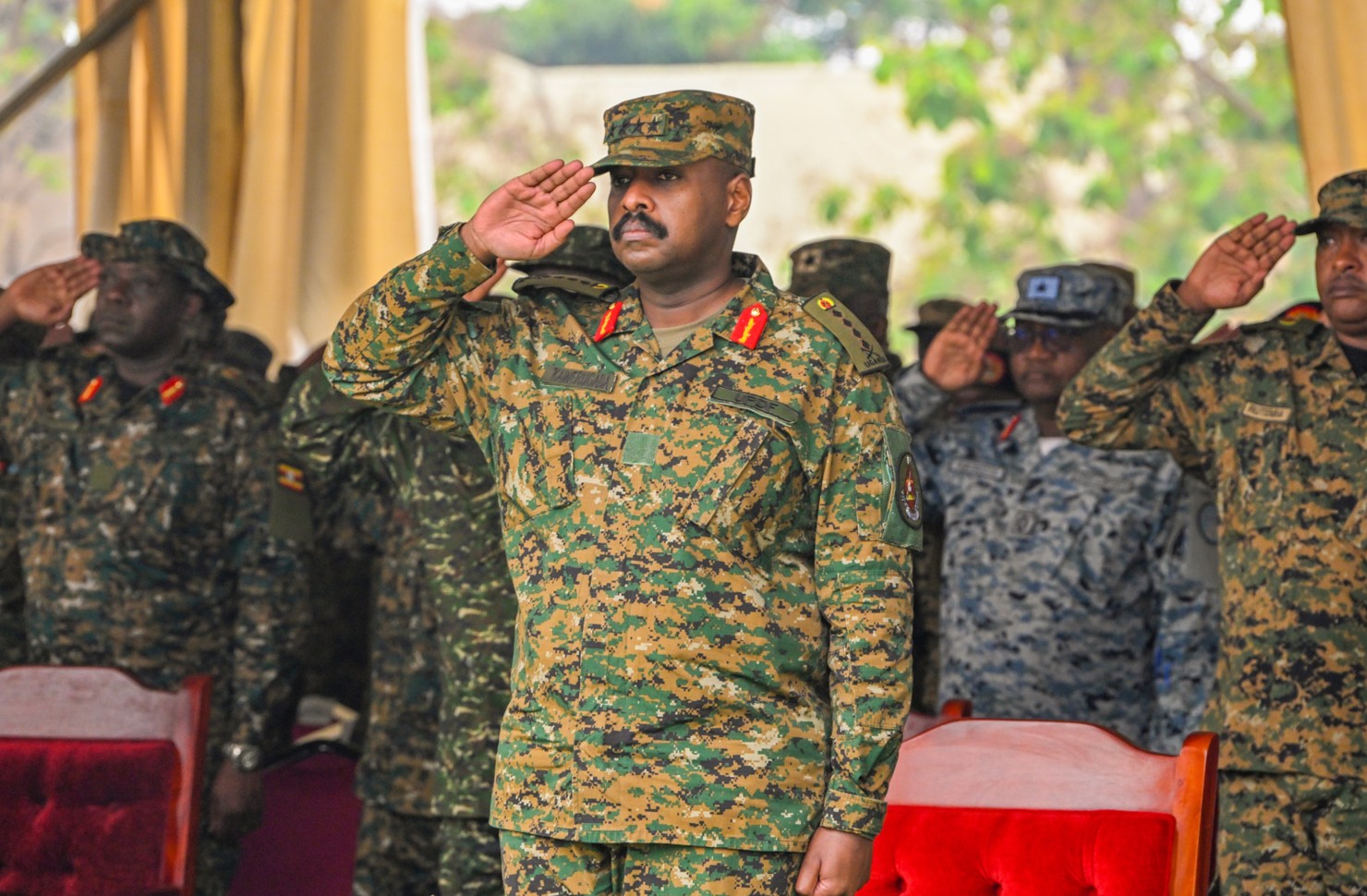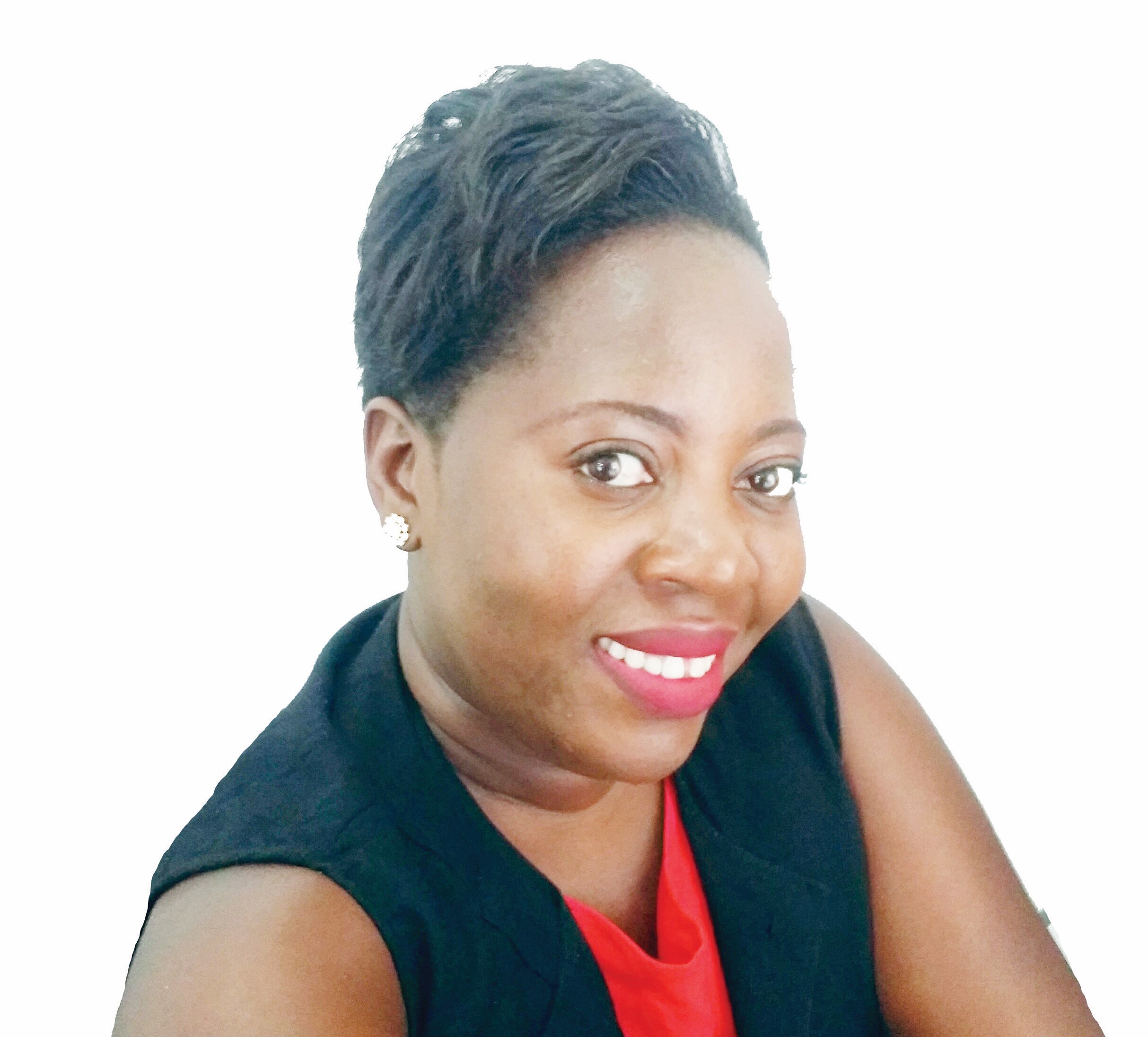PRESIDENT MUSEVENI SAYS 70% OF UGANDANS ARE NOW IN THE MONEY ECONOMY AS NRM MARKS 40 YEARS
President Yoweri Kaguta Museveni has said that 70 percent of Ugandans are now participating in the money economy, a milestone he attributed to four decades of National Resistance Movement (NRM) rule and a series of state-led wealth creation programmes aimed at lifting households out of subsistence livelihoods.
Speaking at the 40th Liberation Day celebrations held at the Kololo National Ceremonial Grounds on January 26, 2026, President Museveni said Uganda’s economic transformation had progressed steadily from post-war recovery to diversification, value addition, and, most recently, the emergence of a knowledge-based economy.
The celebrations, held under the theme “Tribute to the Patriots who ushered in a fundamental change,” came just days after President Museveni secured another term in office in the recently concluded presidential elections, in which he was declared winner with 71 percent of the vote.
In his address, the President thanked God and Ugandans for successfully completing the electoral process.
“I thank God for having seen us through this big exercise of elections. Secondly, I salute all Ugandans for participating in the elections. I thank all the NRM members for supporting the NRM and its flag bearers,” he said.
The President described the election outcome as a major political victory but expressed concern over what he termed as low voter turnout among NRM supporters.
According to President Museveni, although he received about eight million votes, internal party data suggested that many more supporters were eligible to vote.
“We are celebrating a big victory in politics. I got eight million votes, but ten million of my supporters of NRM did not turn up to vote,” he said, recounting challenges encountered during the party’s registration exercise and the national voters’ register verification process.
He said that while the NRM had registered about 21 million supporters—18 million of whom were ready to vote—only eight million initially appeared on the Electoral Commission register. Although the party later ensured that at least 14 million supporters were registered in time, many still failed to cast their ballots.
“But I got eight million votes. So where are the rest of the votes? That means some of our people did not turn up to vote,” he said.
Gen. Museveni attributed the low turnout to two main factors: intimidation by opposition supporters and indiscipline within sections of the NRM leadership.
“I hear the opposition wasting time talking nonsense. They are lucky because not all of my supporters turned up. If they had all turned up, there would be no opposition in Uganda,” President Museveni said.
He alleged that some NRM supporters were threatened and attacked during the campaign period, while law enforcement agencies failed to act decisively.
“People were threatening our supporters, telling them, ‘you are the reason why Museveni is still leading us.’ You have no right to say that. Why would the police hear this and do nothing?” he asked.
The President also criticised what he described as selfishness and indiscipline among some NRM leaders, which he said discouraged citizens from exercising their civic rights.
The Economy is moving very fast:
Turning to the economy, President Museveni said Uganda was currently growing at about seven percent annually and projected even faster growth once oil production begins.
“The economy is moving very fast, growing at seven percent now, and with the oil, we are going to go into double digits. This year, your oil will start flowing,” he said, adding that Uganda had resisted external attempts to control its petroleum resources.
However, he acknowledged that despite overall growth, a significant segment of the population remained trapped in subsistence production.
“These are the ones who are still in poverty,” President Museveni said, tracing the challenge back to colonial economic structures that excluded the majority of Africans from meaningful participation in the money economy.
At independence in 1962, President Museveni said, only about nine percent of Ugandans were involved in the money economy. Although the proportion increased over time, progress remained slow until the NRM introduced wealth creation programmes, starting with early initiatives such as Entandikwa, which provided micro-credit to small-scale entrepreneurs.
By 2013, he said, only about 32 percent of households were in the money economy, while 68 percent were producing mainly for subsistence.
This, he explained, prompted the launch of Operation Wealth Creation (OWC), under which the Uganda People’s Defence Forces (UPDF) distributed seedlings and agricultural inputs across the country.
“When we checked in 2019, 61 percent of Ugandans were in the money economy, while 39 percent were still in the subsistence economy,” President Museveni said.
However, concerns emerged over what he described as “beegabira bokka”—elite capture of government programmes, leading to the introduction of the Parish Development Model (PDM), which channels funds directly to communities at the parish level.
According to President Museveni, the proportion of Ugandans in the money economy has now risen to 70 percent, leaving about 30 percent still outside.
“We don’t want a country of 70 percent rich people while 30 percent are poor,” he said, issuing a stern warning against the misuse of PDM funds, citing cases where local officials and committees had diverted money for personal gain.
In some areas, he said, PDM resources had been monopolised by a few individuals, including parish chiefs and so-called focal persons, contrary to programme guidelines.
“That’s not how the PDM is supposed to be. PDM needs a general meeting of the whole parish with everybody above 18 years, and the general meeting should elect a committee,” he said.
President Museveni said the government would amend PDM guidelines, increase funding, especially in urban areas where parishes have larger populations, and enforce strict accountability.
“We may have to put 300 or 400 million shillings per parish in towns because the homes there are many,” he said, adding that rural households could be fully covered within three years if funds are properly utilised.
He warned that parish chiefs who violate PDM rules would be arrested, noting that officials in Buwambo, Maracha, and Iganga had already been apprehended following complaints from residents.
While those who improperly formed committees would be barred from leadership positions and required to refund money, President Museveni said individuals who extorted funds from beneficiaries would face prosecution.
Beyond PDM, President Museveni said the government would continue supporting other groups, including boda boda riders, ghetto youth, cultural and religious leaders, unemployed university graduates, and political leaders at the parish level.
The goal, he said, was to ensure that all Ugandans are actively involved in wealth creation.
“This will be emphasis number one,” President Museveni said.
He added that once household incomes improve, the government would intensify investment in education and health, particularly in addressing curative health challenges, while preventive programmes such as immunisation continue to perform well.
Infrastructure development, especially maintenance of rural roads, will also remain a priority.
“We don’t want any unrepaired roads, whether tarmac or marram,” he said.
Justice and corruption:
On governance, President Museveni said the fight against corruption would extend to the judiciary, praising the new Chief Justice Dr Flavian Zeija, for taking a firm stance.
“We don’t want corruption in the courts. The new Chief Justice is very active on that,” he said.
The President also dismissed criticism from sections of the media and opposition figures who claim that Uganda has not changed over the last 40 years.
“You have been hearing people say that the NRM has done nothing in the last 40 years,” President Museveni said, referencing a newspaper headline that read ‘No change for 40 years.’
To counter such claims, President Museveni presented what he described as five phases of Uganda’s economic recovery and transformation since 1986.
These include minimum economic recovery after years of instability, expansion of the small colonial economy, diversification and value addition, and the current transition into a knowledge economy.
He showcased video footage highlighting four key sectors he said define Uganda’s modern economy: commercial agriculture, manufacturing, services, and Information and Communication Technology (ICT).
The films featured large-scale sugarcane plantations, coffee and cocoa farms, palm oil estates, livestock projects, and major industrial parks, including Namanve, Mbale-Sino, Kapeka, and Mukono–Mbalala.
“That’s why somebody told me that when you go to the supermarkets now, 65 percent of the products are made in Uganda. In the past, it was 100 percent imported,” President Museveni said.
He also reflected on Uganda’s troubled past, recalling the 1972 expulsion of Asians by former president Idi Amin.
“At that time, there were only about 4,000 properties owned by Asians in the whole of Uganda. Now we have millions of properties owned by Ugandans,” he said, questioning the rationale behind Amin’s actions.
On industrialisation, President Museveni cited the progress of the Kiira Motors project, noting that locally assembled vehicles had recently completed a return journey to South Africa.
The Minister for the Presidency, Hon. Babirye Milly Babalanda, congratulated President Museveni on his re-election, describing the 40-year journey of the NRM as transformative.
“Today’s commemoration is a reflection on four decades that have profoundly reshaped the destiny of our nation,” Hon. Babalanda said, thanking God for President Museveni’s leadership and resilience.
She said the election victory reflected continued public confidence in President Museveni and the NRM.
“Now that the elections are behind us, we face the greater responsibility of building Uganda. Let us move forward in unity, mutual respect, and shared national purpose,” she said.
During the ceremony, the government awarded national medals to 33 distinguished Ugandans in recognition of their contributions to the liberation struggle and national development.
January 26 marks the day in 1986 when National Resistance Army fighters captured Kampala, ending the rule of the UNLA junta led by the late Gen Tito Okello Lutwa. President Museveni, who led the NRA, was subsequently sworn in as Uganda’s ninth President.
The event was attended by Vice President, H.E Jessica Alupo, Speaker of Parliament, Rt. Hon. Anita Among, Chief Justice, His Lordship Flavian Zeija, Deputy Speaker, Rt Hon. Thomas Tayebwa, Prime Minister, Rt. Hon. Robinah Nabbanja, senior NRM leaders, ministers, service chiefs, diplomats, religious and cultural leaders, and former national leaders, including Edward Kiwanuka Ssekandi, Ruhakana Rugunda, Amama Mbabazi, and Kintu Musoke.
ENDS
2026-01-26















